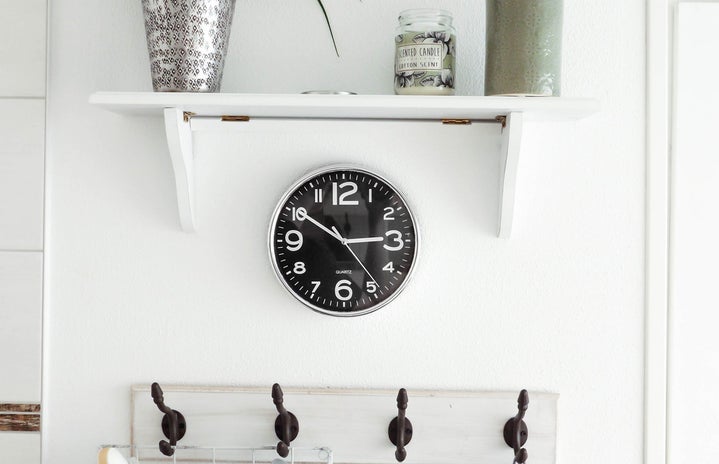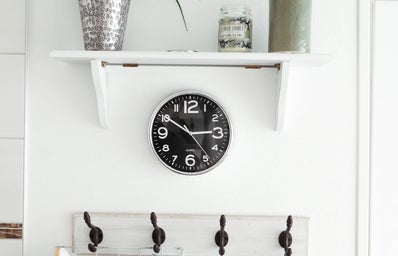We’ve all been there where you have a date, a school event, or a girls’ night out – and suddenly your hair is a mess. But how? You just washed it the day before last. How can your hair possibly feel this dirty already? You hop into the shower, give it a quick wash for what feels like the millionth time, and wait for your mane to be restored to its luscious glory. Then, two days later, repeat.
I used to be just like you, washing my hair every two days, making sure that my hair washes would align with my social calendar, and feeling like a gross blob whenever I saw an oily strand. Then, it started to get out of hand. My hair would be a disgusting mess by the second day, and I would just have to wash and wash and wash. I got tired of this vicious cycle, so I broke the habit.
Would you believe that now I wash my hair once every five days? And my hair still looks cute by day five, I promise! Once I figured out that frequent washing only makes my hair look and feel worse, now my style is better than ever.
Why I cut back on washing

Related: What To Do If Hard Water Is Making Your Hair Dull, Damaged & Frizzy
Repercussions of over-washing your hair
Think of your scalp and hair like an extension of your face. What happens when you wash your face too much? It feels tight and unpleasant, and you end up producing more oil that can cause breakouts. When you over-wash your face, you strip away all of the good oils.
The same removal of oil happens when you wash your hair too much. The more you wash it, the more you inadvertently dry it out, and that in turn causes your scalp to produce more oils as compensation – all leading you to wash it even more.
Greasy hair isn’t the only result of over-washing. Your hair can also become brittle at the ends and generally unbalanced – think oily scalp, but incredibly dry ends. Even worse, though, your hair could potentially become super dry all over, leading you to condition more than you actually need to. Over-washing can also lead to dandruff, breakage, dullness, and flat lifeless hair.
“I had experience with over-washing my hair back in high school. My scalp is oily, so I would wash my hair a lot, almost every day. Then, I started to read about oily scalps and oily hair and the ways in which I could minimize my oil production” says Josie, a student at the Savannah College of Art and Design. “I quit washing so much and let my scalp regulate its oil production on its own. Eventually, it started to produce less oil. Now, I wash it every two to three days. Sometimes I wash it more, if I do exercise or just feel like my scalp is really dirty!”
Related: Should You Switch to a Sulfate-Free Haircare Routine?
How to start doing better for your hair
Shampoo & conditioner
It’s never easy to break a habit or routine, but there are some simple ways to start. Set a goal of not washing your hair for one week. Any hair woes you experience during that week can be solved with a braid and just a little spritz of dry shampoo. If you’re a professional whose appearance matters significantly on a daily basis, there are ways to break the washing habit without having your hair look super greasy, such as using a clarifying shampoo.
Clarifying shampoo removes oil and dirt from your scalp. It also removes the built-up product from your hair, leaving it feeling bouncy and smooth. For my sustainable and on-a-budget babes, clarifying shampoo can be expensive. To maintain clean and healthy hair, I co-wash with a solution of baking soda and water (about three tablespoons of baking soda for every half cup of water). I pour it on my hair before washing, let it sit for a minute and then wash normally, following up with my regular shampoo. As for which clarifying shampoo to use, I’ve only ever used one, but it has worked so well! Shout-out to my love, the Neutrogena Anti-Residue Shampoo.
You can also try to exfoliate your scalp, which can promote hair growth, prevent dandruff, and help with circulation. There are specific brushes made just for this. Be warned, though: this isn’t something you should be doing every time you wash your hair. You can use it every two or three washes to give your scalp the boost it needs. Even if you don’t make it a whole week without washing your hair, you can get to day five if you nourish and care for your hair on day four.
If you have curly hair
I want to make a clear distinction for my curly haired friends, which is that you should be washing even less than those with straight or wavy hair. Curly hair is prone to breakage and feeling brittle more frequently. You can prevent this by not washing as often as you think you should, in addition to using a silk bonnet while sleeping.
Focus on conditioning and protecting your hair. If you wash your hair every few days, wash it once a week and see how you feel. A good rule of thumb is that if your curls are dry, wash less.

Not every method works for everyone. Maybe the prospect of not washing your hair for a week grosses you out. That’s fine! But one thing is for certain that you can’t be washing your hair every day. It’s going to turn completely lifeless, and there’s a point of no return. Trust me, you don’t want to get there.


